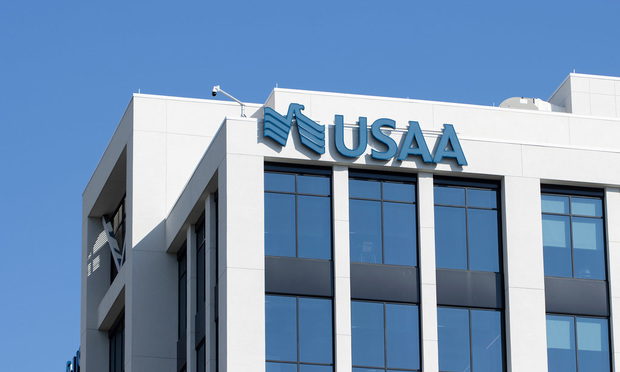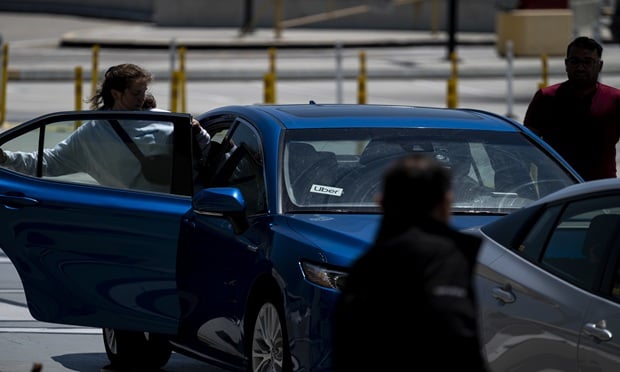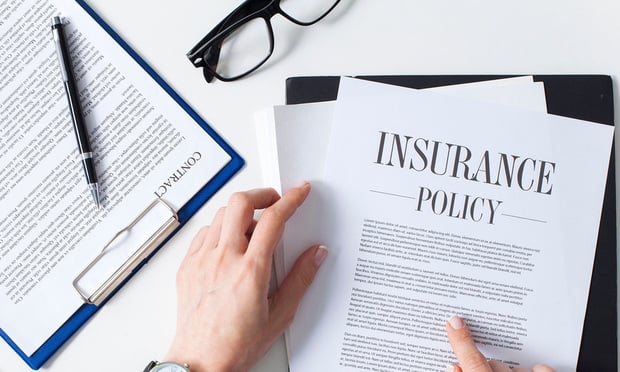President Obama arrived in Cuba yesterday, becoming the first United States president to visit the large Caribbean island nation since Calvin Coolidge in 1928. The historic trip comes 15 months after Obama announced the restoration of diplomatic ties between the U.S. and Cuba.
In the push to normalize relations with the communist-led government in Havana, U.S. officials have worked to reopen Cuba to the United States with direct-flight agreements and the first direct mail delivery to the country, just last week. The Cuban government seems prepared to make the regulatory and policy changes that U.S. business would need to offer do business inside the country.
New market for insurers is expected to emerge
Until now, Cuba's 11.2 million citizens have had little need to buy Auto or Property insurance as the socialist government provided for basic needs. But as commerce develops, private ownership of real estate expands and entrepreneurialism is encouraged, a new market for insurers is expected to emerge.
The current state of Cuba's insurance market and what commercial opportunities may unfold in the future, are outlined in the white paper "Reopening for Business: What Renewed Ties between the U.S. and Cuba Mean for Property/Casualty Insurers," co-written by Robert Hartwig, an economist and president of the New York City-based Insurance Information Institute, and Lynne McChristian, a teaching faculty member at Florida State University in Tallahassee.
Here are a few of the factors to consider for U.S. insurers contemplating a move into Cuba:

A pedestrian wades through a flooded portion of Avenida de los Presidentes, in Havana, Cuba, Saturday, Jan. 23, 2016. (Photo: Desmond Boylan/AP Photo)
Natural catastrophe risk
The infrastructure in Cuba will need financial protection from the myriad of natural disasters the country faces — including drought, hurricanes, landslides, storm surge and earthquakes. Cuba's greatest natural threats are wind (generally hurricanes) and storm surge. Since 2001, Cuba has been struck by 16 hurricanes and tropical storms.
Over a 20-year period Cuba, on average, will have one wind event (a hurricane) with losses above $997 million, according to the Probable Maximum Loss (PML) risk metric. The PML is used to establish the magnitude of resources that insurance companies or a government should have available to buffer losses.
Related: 8 ways to mitigate flooding risks
A challenge for the P&C insurance industry will be the lack of historical information related to catastrophe risk coming directly from Cuban officials upon which to base future insurance pricing. Fiscal details coming out of Cuba are generally incomplete, inaccurate and questionable. However, the international insurance market has proven to be adept at appropriately pricing risk in new and uncertain locations around the globe, a skill that will come into play when evaluating risk in Cuba.

A poster features portraits of Cuba's President Raul Castro, left, and President Obama and reads in Spanish "Welcome to Cuba" outside a restaurant in Havana, Cuba, Thursday, March 17. (Photo: Ramon Espinosa/AP Photo)
Business, political and economic risk
The Cuban government's control of business and the weak regulatory environment make the nation one of the world's most difficult places in which to do business. As of December 2015, there were only six totally foreign capital companies in Cuba: three in oil and energy, two in maritime transport and one in financial activities.
Related: Looking to expand in another country? Check the political risk first
Aon Crisis Risk Rating puts Cuba at high risk for political interference. Even with Cuba's recent reforms, political violence risk is expected to increase.
Among the many obstacles to doing business in Cuba is the existence of two official currencies. Until Cuba fully adopts a single currency strategy, it will be very difficult for foreign investments of any type to flow in.

The U.S. flag flies outside the U.S. embassy near many Cuban flags hoisted on Revolution Day, in Havana, Cuba, Friday, Jan. 1. (Photo: Desmond Boylan/AP Photo)
Cuba's current insurance market
It's an understatement to call Cuba's current insurance marketplace underdeveloped. Particularly for property and casualty insurers, the market is in its infancy. Cuba's entire insurance market is about as big as Alaska's personal auto market.
Two insurance companies are currently operating in Cuba, organized under the banner of the Caudal Group, which is owned and operated by the state.
Cuba's Ministry of Finance governs all insurance activity and is responsible for the activities of insurers and reinsurers, brokers, agents and other insurance intermediaries.

Cars drive along Neptuno Street as it rains in Havana, Cuba on Dec. 4, 2015. (Photo: Desmond Boylan/AP Photo)
Autos
The Cuban government controls vehicle ownership, and a foreign individual or corporation must get approval to own one. Only two vehicles can be purchased for each foreign worker living on the island. Cuban workers are restricted to one vehicle. These restrictions apply to all vehicles, including imported cars, which are rare because of the embargo, and a 100% import tariff.
Related: For Auto insurers, the rate is there but where's the profit?
Third-party automobile liability is compulsory for foreign residents (including diplomats) and for vehicles carrying either freight or people.
There are several rental car agencies in Cuba, and Cubans may drive rental cars, with coverage extended on their own insurance for an additional cost. Such coverage may also extend to a second foreign driver. Insurance for rental cars must be paid in cash and generally does not cover liability.

In this Oct. 16, 2015, photo, Maria Victoria Machado stands on her front porch in Havana, Cuba. (Photo: Desmond Boylan/AP Photo)
Property
In a country so poor that monthly salaries average $20, there is a scarcity of personal real estate or property to insure. Rent is free, and should a national disaster strike, the government provides subsidies to replace personal property. Therefore, there is currently little incentive to buy property insurance.
Clearly, in a business environment where the state controls so much, educating the population about the value of protecting ones' assets with insurance will require an ongoing, long-term commitment.
Cuba began allowing permanent residents to buy and sell real estate freely in late 2011. U.S. citizens are prohibited from buying property until the embargo is lifted.
Related: Survey: Property insurance satisfaction falls for the first time in 5 years
Home ownership is restricted to one primary residence and one vacation home. Buyers and sellers generally agree on a property's price, or they simply swap residences — and that means there are no home mortgages. Because little or no capital is accumulated by this sales process, there remains little to protect with insurance.
Still, Cubans are starting to see the value in the real estate they own. There appears to be a new interest in maintaining it. This will allow Cubans to build net worth, creating a reason to buy insurance — eventually.

A taxi driver pedals his bicycle, decorated with Cuban and U.S. flags, as he transports a woman holding a sleeping girl, near the Capitolio in Havana, Cuba, Tuesday, March 15. (Photo: Ramon Espinosa/AP Photo)
Business ownership and jobs
Cuba's private sector is called the "non-state sector." It comprises both the self-employed and enterprises that are a combination of foreign- and state-owned businesses. Although the Cuban government is gradually shifting jobs and business ownership into private hands, the land those businesses occupy remains state owned.
The obvious objective of Cuba's tax structure is to prevent private accumulation of property; however, the effects of the tax structure discourage job growth in a private sector that has the potential to revive the economy and provide for its population of approximately 11.2 million people.

Yachts from the United States take part in the Conch Republic Cup Key West Cuba race week in front of the lighthouse of the Morro Cabana Fortress in Havana, Cuba, Wednesday, Feb. 3. Over 60 vessels from the United States took part in the yachting week that was shortened by adverse climatic conditions. (Photo: Desmond Boylan/AP Photo)
The future in Cuba
Opportunity may well exist for P&C insurers in Cuba but, in the near term, are likely to be limited to travel-related products, agriculture and the hotel industry.
The biggest challenge facing insurers is that insurance is simply not yet a valued commodity for Cubans. The Cuban economy and infrastructure has a long way to go before the need for more sophisticated, complex insurance products will be recognized, let alone developed and sold.
Visit the I.I.I. website to download your copy of "Reopening for Business: What Renewed Ties between the U.S. and Cuba Mean for Property/Casualty Insurers."
Are you following us on Facebook?
Want to continue reading?
Become a Free PropertyCasualty360 Digital Reader
Your access to unlimited PropertyCasualty360 content isn’t changing.
Once you are an ALM digital member, you’ll receive:
- Breaking insurance news and analysis, on-site and via our newsletters and custom alerts
- Weekly Insurance Speak podcast featuring exclusive interviews with industry leaders
- Educational webcasts, white papers, and ebooks from industry thought leaders
- Critical converage of the employee benefits and financial advisory markets on our other ALM sites, BenefitsPRO and ThinkAdvisor
Already have an account? Sign In Now
© 2025 ALM Global, LLC, All Rights Reserved. Request academic re-use from www.copyright.com. All other uses, submit a request to [email protected]. For more information visit Asset & Logo Licensing.








